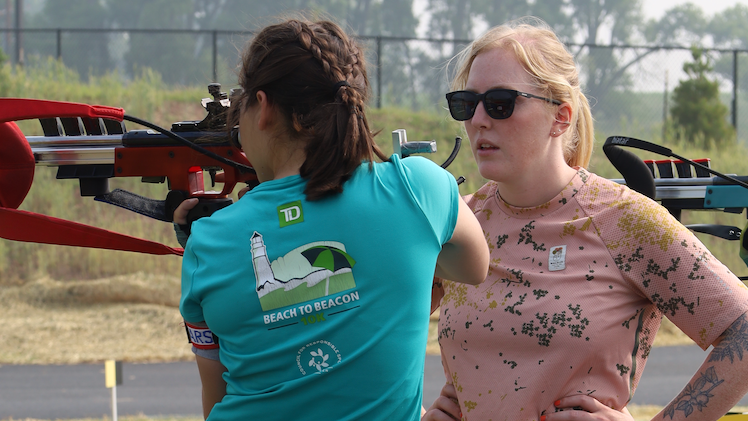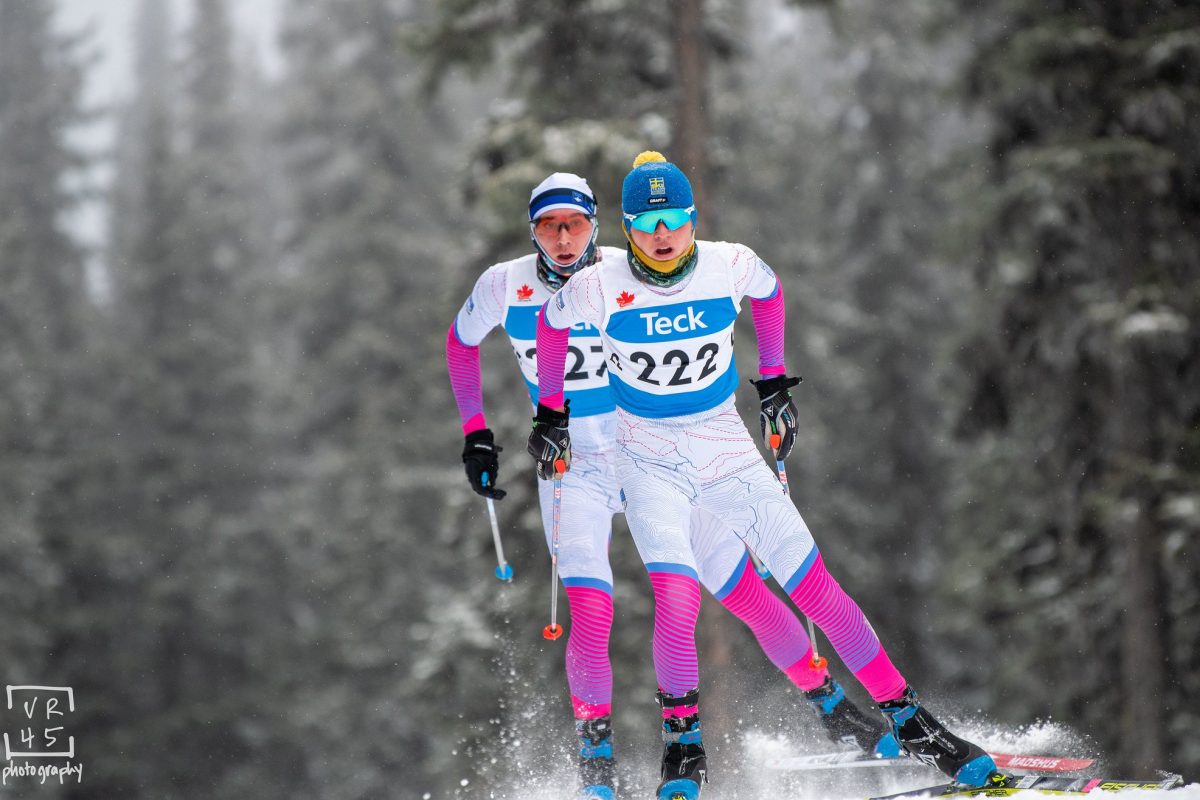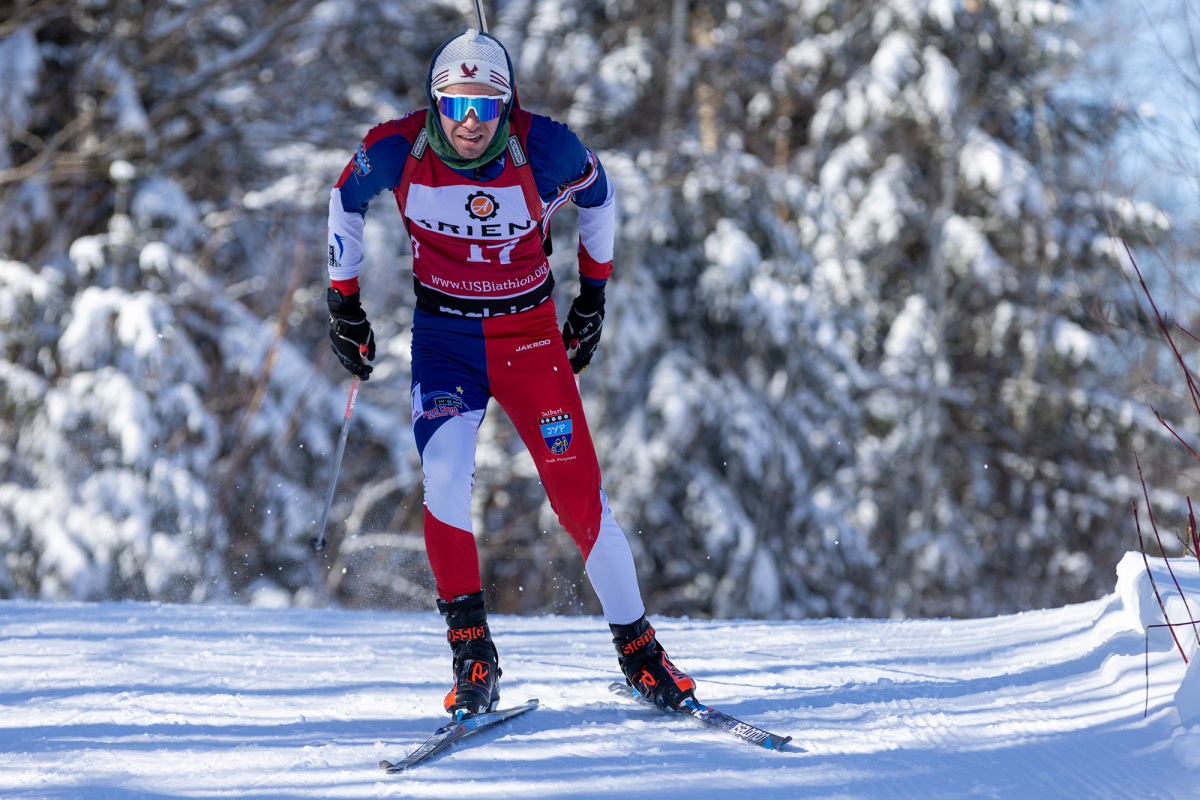
After show races in Moscow last weekend, many of the world’s top biathletes headed all the way across Russia for another series of competitions, this time in Kamchatka, a large peninsula about 1,000 kilometers northeast of Sapporo, Japan.
The series is called the Vitaly Fatyanov Prize after a famous Russian coach, and has been held in Kamchatka since 2009. To lure top athletes across an entire hemisphere – the time difference from central Europe is ten hours – organizers pay all expenses for the racers they invite, and offer up a shiny new car to the winner.
It’s not enough for everyone – after finishing the season in mid-March, much of the World Cup field is enjoying vacation before they have to get back to training for next year. But many big names did make the trek to the region which boasts grizzly bears and volcanoes and is about as foreign to many Russians as it is to the rest of the world.
On Friday, competition kicked off with a pair of sprint races and a snowstorm. The men’s 10 k race was won by Björn Ferry of Sweden, who has been on a tear in Russia: he won the mixed relay in Moscow with Kaisa Makarainen of Finland.
“This was probably my best race of the season,” said Ferry, whose top finish of the year had been in World Championships mass start in Ruhpolding, where he took silver. “I’d had a little cold, so this was a surprise to me. Maybe next season I will plan to get sick before particularly important races.”
Clean shooting earned Ferry the victory by 15 seconds over Lars Berger of Norway – who in some ways was the surprise of the podium. Although Berger has won several World Cup races over the course of his long career, he didn’t hit the podium this season. His single penalty represented his best shooting race of 2012.
Third place went to Carl Johan Bergman of Sweden, who has found success in Kamchatka before; last year he was third at the end of the weekend.
Ferry said that he was unbothered by the less than ideal weather – and his explanation might explain why the Scandinavians made a clear sweep of the podium.
“I’m from northern Sweden, where we have similar weather,” he said.
Simon Fourcade of France took fourth, while Aleksey Slepov, a 25-year-old without a single World Cup start to his name, was a surprise in fifth for the Russians. Several World Champions and medalists were further down the list; the sole North Americans, Marc-Andre Bedard of Canada and Jay Hakkinen of the U.S., placed 25th and 34th.
In the women’s 7.5 k race, the Scandinavian dominance continued, at least at the top of the podium, with Synnøve Solemdal taking a 25-second win. Ukrainian twins Vita and Valj Semerenko earned the other medals and were separated by just two seconds. While they shot clean, Solemdal had missed two shots – making her victory more than a little unlikely.
“I’m in good shape,” said Solemdal. “But I didn’t think that I got the win. There are a lot of strong athletes here.”
The 22-year-old can be counted among them. The top ten results of her career have all come this season, where she topped out at fourth in a World Cup sprint in Östersund to kick off the season.
Like Ferry, she said that the weather didn’t bother her.
“When you start to race, you don’t think about it,” she told the Russian Biathlon Union. “It snows in Norway at this time of year too. The season is ending, though – I hope it will stop.”
The Russians were once again shut out of the medals. Natalia Sorokina, whose lone World Cup victory came back in the 2003/2004 season, placed fourth, followed by teammate Daria Virolaynen, who like Slepov has no World Cup experience.
Megan Heinicke of Canada placed 12th.
Why weren’t the Russians able to win? One contributing factor is that while Kamchatka is technically home soil, and the fans were supporting the Russians more than anyone else, the venue is so far away that they haven’t necessarily spent much more time there than some other competitors.
And while many of the bigger names had competed in Moscow, not everyone has been thinking about biathlon for the last few weeks, including the Russians.
“Synnøve and I have spent a lot of time in Russia,” Ferry said . “I think that the other athletes have not practiced so much. Michael Greis, maybe, was drinking beer in Germany the whole time.”



